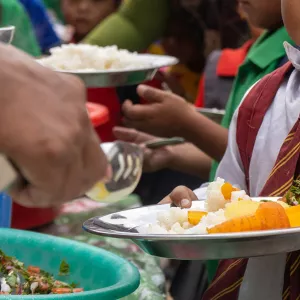Neglected No More: Why Climate-Smart Underutilized Foods Belong on School Meal Menus
As highlighted during the 2024 Global Child Nutrition Forum in Japan, integrating neglected and underutilized species (NUS) into school meal programs offers a promising pathway to transforming food systems so they better serve both people and the planet. These climate-smart, nutrient-rich foods not only enhance dietary diversity; they also support smallholder farmers and contribute to local food systems and economies. However, successfully incorporating these

Neglected No More: Why Climate-Smart Underutilized Foods Belong on School Meal Menus
As highlighted during the 2024 Global Child Nutrition Forum in Japan, integrating neglected and underutilized species (NUS) into school meal programs offers a promising pathway to transforming food systems so they better serve both people and the planet. These climate-smart, nutrient-rich foods not only enhance dietary diversity; they also support smallholder farmers and contribute to local food systems and economies.
However, successfully incorporating these foods into school meal programs worldwide requires addressing several key challenges. Limited access to high-quality seeds, gaps in nutrition data, challenges for logistics and procurement, and a lack of supportive policies all pose significant barriers. Strengthening research efforts and improving policy frameworks are essential to ensuring that these foods are available, accessible, and effectively integrated into school meals. Encouragingly, some countries are already making strides in these areas, providing hopeful examples of what can be achieved.

